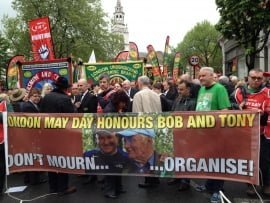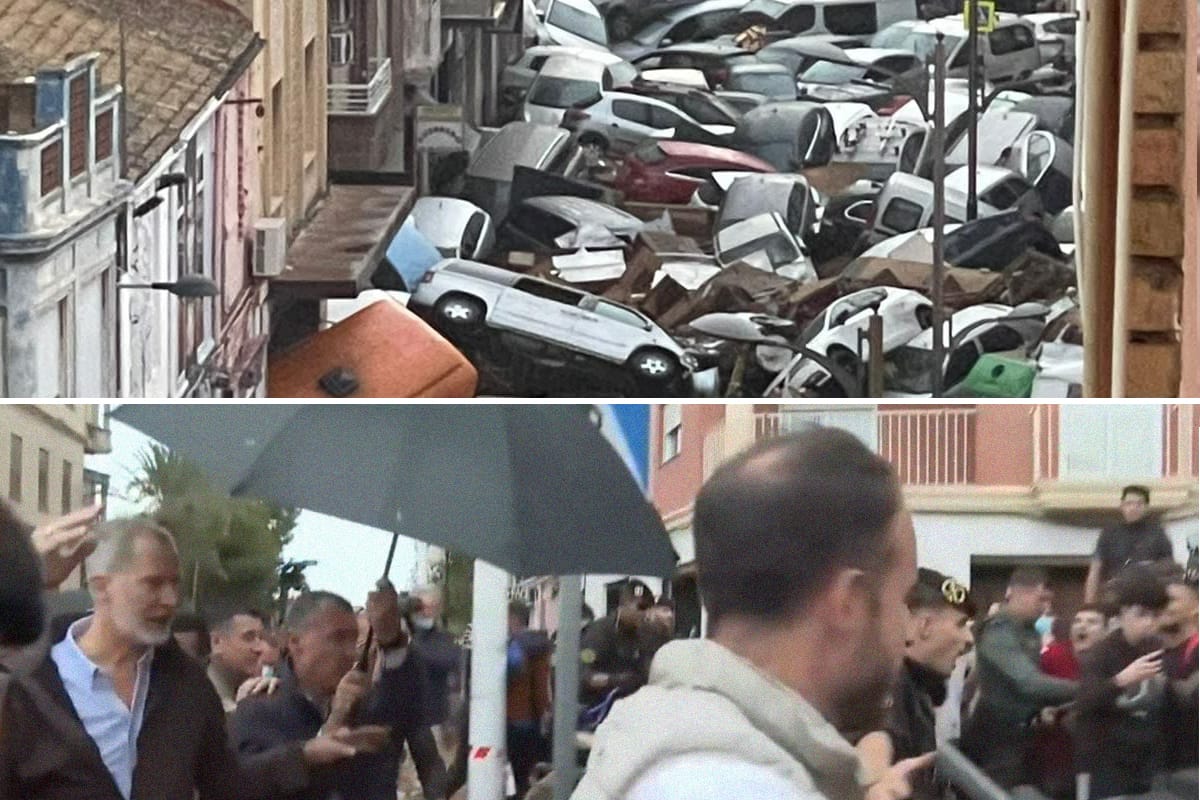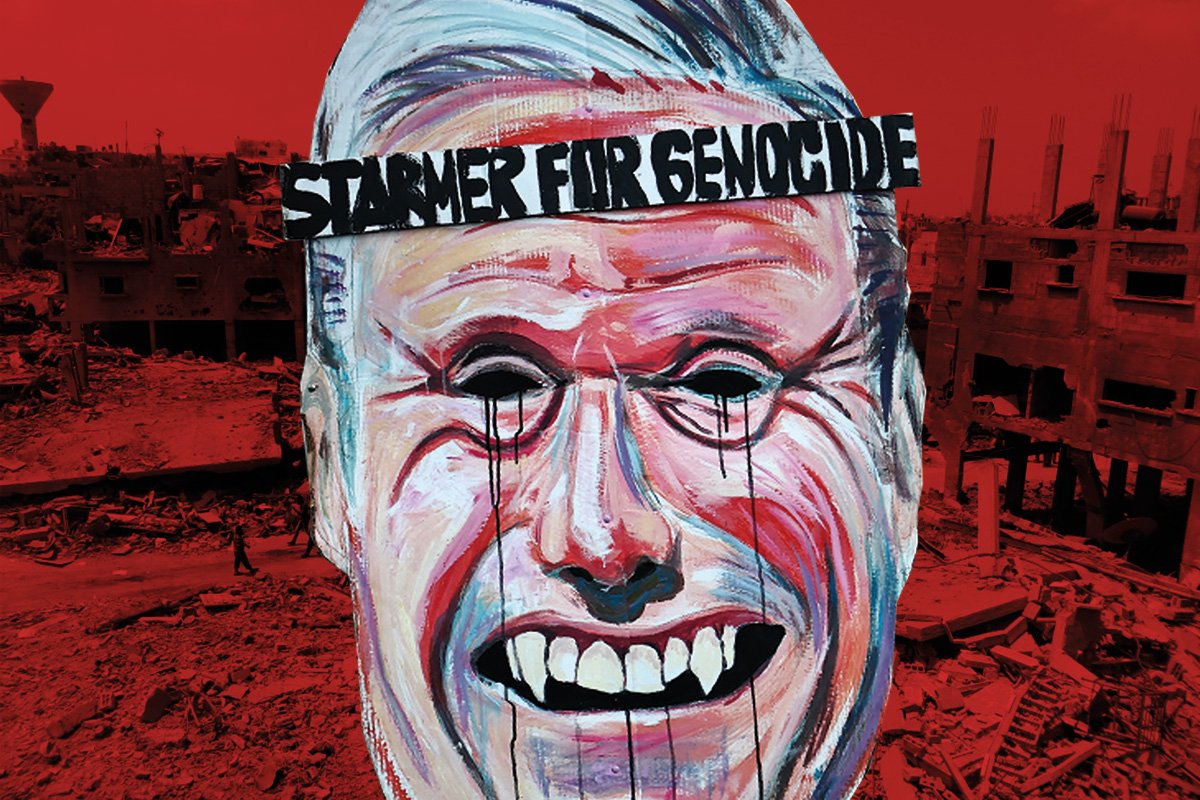The beginning of May traditionally sees demonstrations and rallies in cities across the UK in support of International Workers’ Day, and this year was no exception. We publish here reports of May Day celebrations in London and Edinburgh, which demonstrate the unity of workers and youth across Britain in the face of the Coalition’s programme of austerity.
The beginning of May traditionally sees demonstrations and rallies in cities across the UK in support of International Workers’ Day. This year was no exception, with a noticeably larger demonstration in London as thousands of transport workers from the RMT turned out in support of the late leader Bob Crow. We publish here reports of May Day celebrations in London and Edinburgh, which demonstrate the unity of workers and youth across Britain in the face of the Coalition’s programme of austerity.
London
On May 1st in London, thousands of workers descended onto the streets to celebrate International Workers’ Day and to honour the lives of late socialist Labour MP Tony Benn and RMT (Railway, Maritime and Transport union) secretary Bob Crow.
Amidst the sea of red flags and union banners, most impressive was the number of transport workers, particularly the striking tube workers, who came to honour the fighting spirit of their former general secretary while protesting the London Underground management’s decision to sack over one thousand workers.
The rally began at Clerkenwell Green in front of the Marx Memorial Library at 1pm and, following tradition, marched towards Trafalgar Square, where a film on the struggles of Benn and Crow was projected on to a giant screen for all to see. Subsequently, a number of trade unionists and socialist activists gave speeches of solidarity, emphasising the necessity for Labour to carry out an organized struggle against Capital and towards socialist policies.
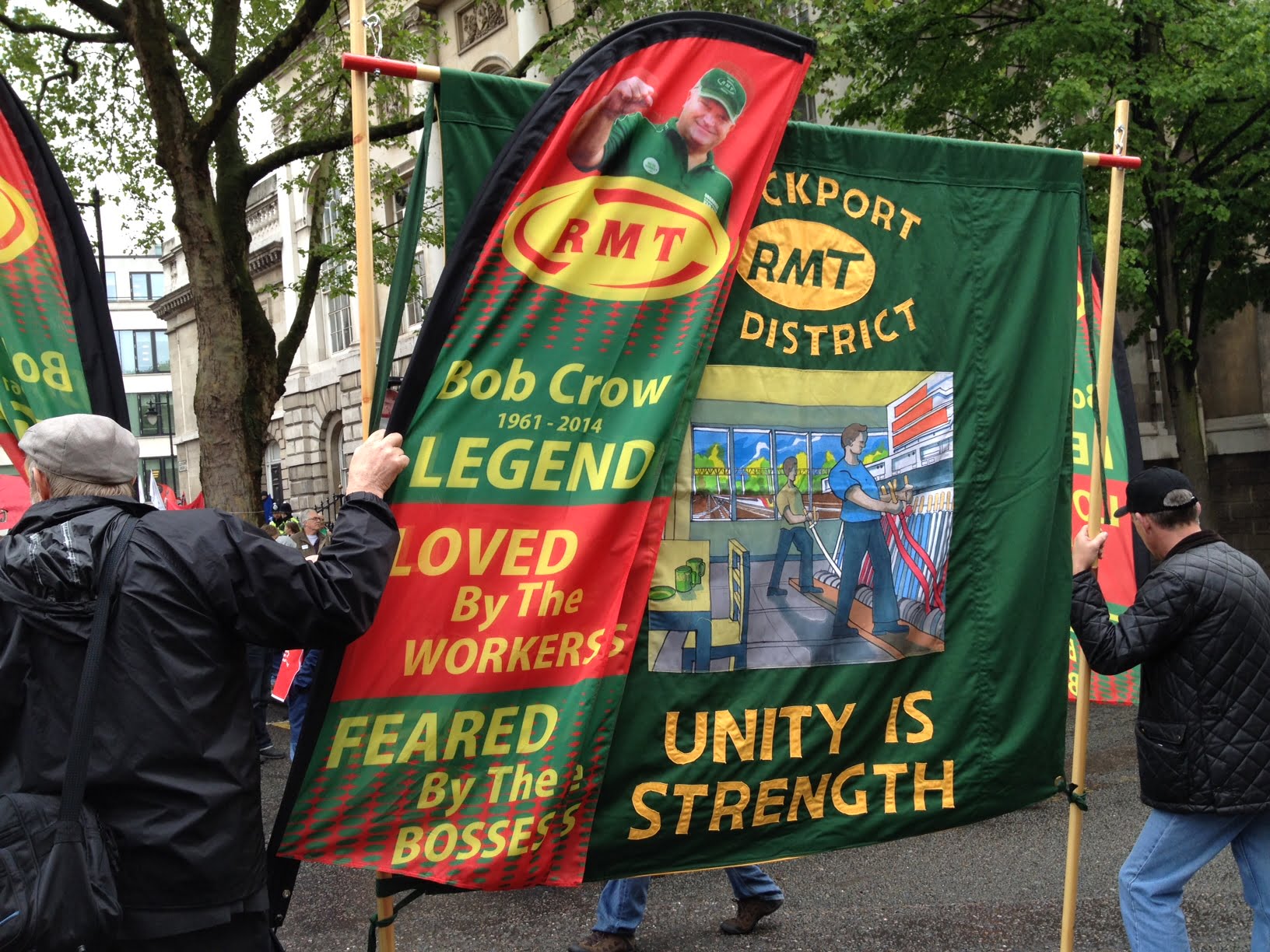 Most importantly, there was a strong recognition of the necessity to continue the legacy of Crow and Benn, who, above all, fought for the socialist transformation of society. This was best expressed in the slogan “Don’t mourn…organise!” inscribed on an RMT banner under the picture of Bob Crow.
Most importantly, there was a strong recognition of the necessity to continue the legacy of Crow and Benn, who, above all, fought for the socialist transformation of society. This was best expressed in the slogan “Don’t mourn…organise!” inscribed on an RMT banner under the picture of Bob Crow.
It is to be expected that International Workers’ Day was chosen for this occasion. Ever since the 1886 Haymarket massacre in Chicago — when the the white flags of striking workers turned red with their blood — and the Second International’s subsequent institutionalisation of this day into the labour movement, May 1st has symbolised the unity and strength of the international working class against the exploiters, irregardless of gender, nation or ethnicity. Every year for over a century, millions of workers around the world have taken to the streets to march and rally against injustice.
21st century capitalism is more profoundly global than ever, as has been proven by the international nature of the 2008 financial crisis and its catastrophic consequences, which the global proletariat is being made to bear. It is for this reason that a successful fight against Capital must necessarily arise out of the unity of the international working class. This argument was picked up at the rally by Len McCluskey, general secretary of Unite the Union, who said that the common interests between British workers and workers from other countries far outweigh the supposed links they have with their own national ruling class.
Workers in Turkey and Cambodia on this same day, for example, were faced with brutal reaction on the part of the police, who brutalised many demonstrators.
It is important to understand that these situations are not as distant as they may seem to us in Britain: they are merely erosions of a greater magnitude in the same global capitalist chain, of which Britain is a part.
As the Tory-Liberal government continues its programme of austerity, workers and youth will move en masse towards their mass organisations – the trade unions and the Labour Party – transforming them into genuine, fighting organs in the class struggle. It is only natural that May Day, as a global working class tradition, will play a similar role; Trafalgar Square will swell exponentially, this year’s success representing only the beginning.
By Archie Marshall (LSE Marxists)
Edinburgh
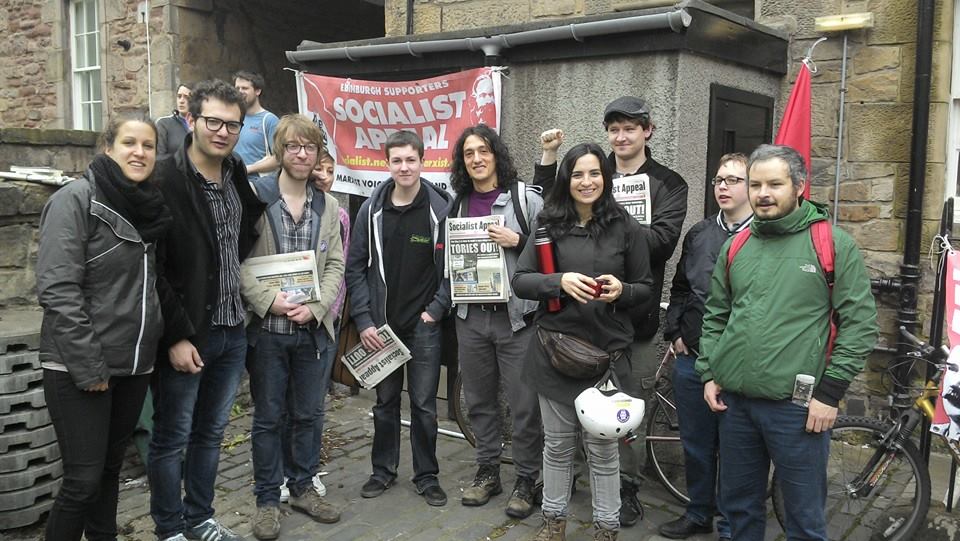 May Day has always been an important occasion to reflect upon the state of affairs of the workers’ struggle, as well as a gathering event for working class people. Speeches, debates and marches are usually accompanied by songs and popular dances, or big concerts.
May Day has always been an important occasion to reflect upon the state of affairs of the workers’ struggle, as well as a gathering event for working class people. Speeches, debates and marches are usually accompanied by songs and popular dances, or big concerts.
From our standpoint in the UK in the year 2014, May Day takes on new meanings as austerity policies, regarded as indispensable by the Coalition, cause an ever shrinking welfare state, which takes workers back to standards of living last experienced decades ago. Meanwhile, the racist and anti-immigration UKIP gains support due to the lack of a real alternative to austerity being presented by Labour.
Hundreds of people decided so to turn up at the Edinburgh and Lothian May Day march and rally. There were people of all ages, with a remarkable youth participation, as well as an extremely multicultural atmosphere. Socialist ideas, therefore, have the power to unite people, rather than divide them.
More experienced attendees were happy with the numbers: “I haven’t seen this number of attendants in a while,” one comrade smiled.
Dozens of banners and flags joined the march, leaving from Johnstone Terrace at 11.30am on Saturday 3rd May. Among them were the Socialist Appeal and Edinburgh University Marxist Society banners, behind which around 15 young Marxists marched.
The short march ended in the overcrowded Pleasance Theatre, where the speakers addressed the audience, stressing the need to solve problems such as the shrinking welfare state and the increasing power of global capital.
Peter Lawson – Unite convenor and shop stewart – spoke about the etymological meaning of “welfare”, from the French “faire” – to do; to do well. It’s quite overt how the current welfare state’s policies in Britain have lost its original meaning. The lack of an established living wage, an extremely low Job Seeker Allowance, and the levy of new taxes that hit the poorest in society hardest all prove this assertion.
In fact, as Owen Jones stated during the rally’s last speech, nowadays even full-time working people struggle to make ends meet. Such a brutal reality explains why millions are angry and are determined to fight back against all these policies that exploit working class people.
That’s why May Day as Labour Day takes a special meaning this year. Working class youth will face worse living conditions than their parents – capitalism offeres no solution to future generations. The more we are aware of that, the more we can educate, agitate, and organise for workers and youth to fight back.
By Emanuele de Vito (Edinburgh Marxists)

